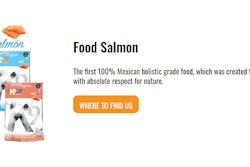
EDITOR'S NOTE: This article previously stated that one of the pet foods involved in the FDA investigation was used in the experiment.
Sales of grain-free dog foods took a hit following June 2019 when the U.S. Food and Drug Administration released their update on the agency’s investigation into correlations between grain-free dog foods and the occurrence of canine dilated cardiomyopathy. In particular, those grain-free dog food brands named by the FDA felt the effect. One of those brands, Acana made by Champion Petfoods, was reformulated to include taurine and fed to Labrador Retrievers for nearly seven months, the dogs didn’t show physiological changes that scientists believe may accompany DCM. The journal Translational Animal Science published the results.
“Champion could share these results with pet owners and key opinion leaders to substantiate their diets," study co-author University of Guelph animal bioscientist, A.K. Shoveller, Ph.D., said. "Indeed, this study had more outcomes than a traditional AAFCO study including some hypotheses that us and others have postulated as what could lead to secondary and nutritionally related DCM. The caveat here is that we did not report cardiac indices, which is the current concern in the canine cardiology community.”
Four male and four female Labrador Retrievers ate Acana Pork and Squash formula for 26 weeks. Researchers measured the dogs’ taurine status and overall health. In the FDA investigation, many of the dogs that developed DCM also had low taurine concentrations in their blood. After Shoveller's study ended, the dogs’ taurine status had actually improved.
“While nutrients do have direct roles in metabolism and physiological function, the improvement in taurine status despite greater fecal bile acid secretion, suggests that the Acana diets would not result in poor taurine status and as such, if DCM is presenting at a higher rate in dogs fed Acana then taurine sufficiency is likely not the causative variable.”
Some have criticised the results because the experiment did not use the formulation noted in the FDA report.
"The results of this study are not surprising," Ryan Yamka, PhD, is founder of consulting agency Luna Science and Nutrition and the Guardian Pet Food Co. "All pet nutritionists in the industry know that supplementing taurine to a food will and should improve taurine status in both dogs and cats in all food forms. The study still does not address the potential issue that may have existed with their original food when the FDA report came out since that food did not contain supplemental taurine. It would have been nice if they used the old formula as another treatment group (or control).
"Lastly, since the study did not look at veterinary diagnostics like echocardiogram to diagnose DCM, they can not draw any conclusions about DCM (or heart health in general) other than taurine status.
Along with naming brands associated with DCM, the FDA also noted the dog breeds most frequently appearing in DCM cases. Even before the FDA investigation, veterinarians and animals scientists had observed that genetics seems to play a role in the likelihood of a dog developing DCM.
“Genetic predisposition is thought to play the most important role in the development of DCM in several dog breeds, mostly large and giant breeds,” Shoveller said. “Labrador Retrievers are large breed dogs, but have not been generally included in the most genetically susceptible breeds. However, the FDA's third most reported DCM breed association was Labrador Retrievers and underpins the importance of this study using Labrador Retrievers.”
Scientists continue searching for the ultimate cause of the DCM cases that the FDA is investigating.
Champion Petfoods did not respond to a request for an interview.
Dilated cardiomyopathy correlation of dog foods in the United States
In July 2018, the FDA alerted pet owners and veterinary professionals about reports of canine dilated cardiomyopathy (DCM) in dogs eating certain pet foods containing peas, lentils, other legume seeds, or potatoes as main ingredients. High levels of legumes or potatoes appear to be more common in diets labeled as “grain-free,” but it is not yet known if these ingredients are linked to cases of DCM.
These reports are unusual because DCM is occurring in breeds not typically genetically prone to the disease. The FDA’s Center for Veterinary Medicine and the Veterinary Laboratory Investigation and Response Network, a collaboration of government and veterinary diagnostic laboratories, are investigating this potential association.
Diets in cases reported to the FDA frequently list potatoes or multiple legumes such as peas, lentils, other “pulses” (seeds of legumes), and their protein, starch and fiber derivatives early in the ingredient list, indicating that they are main ingredients. In the reports the FDA has received, some of the dogs showed signs of heart disease, including decreased energy, cough, difficulty breathing and episodes of collapse. Medical records for four atypical DCM cases, three Golden Retrievers and one Labrador Retriever, show that these dogs had low whole blood levels of the amino acid taurine. Taurine deficiency is well-documented as potentially leading to DCM.



















